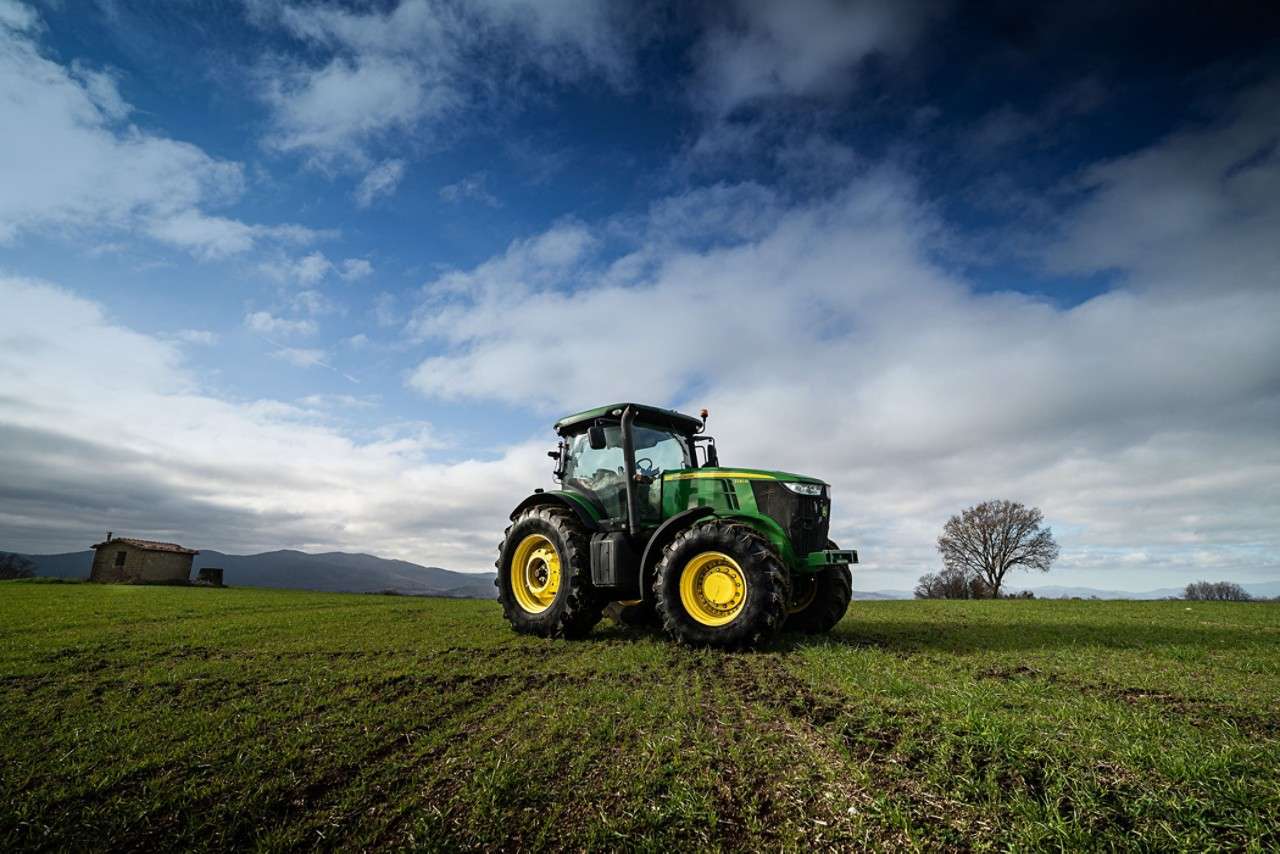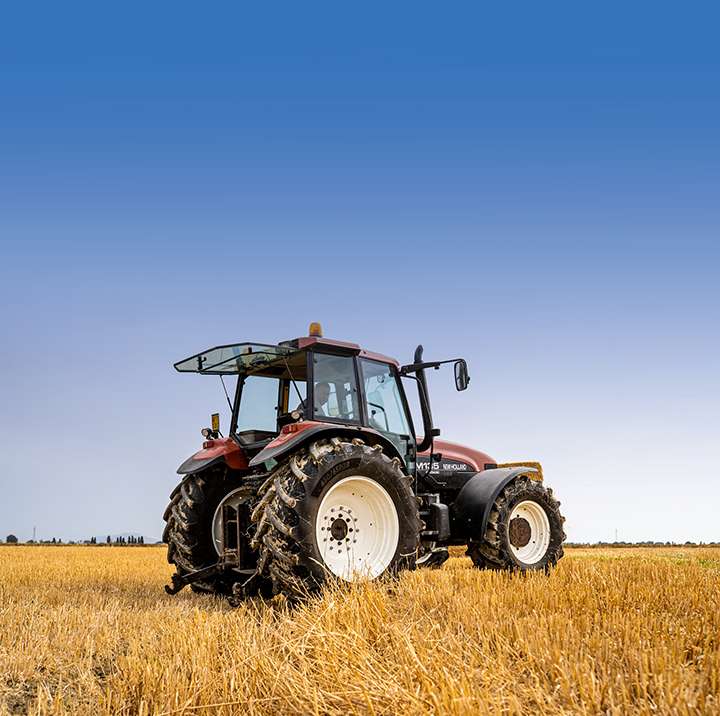Search Further
Kindly select atleast one option
Have Questions Related to CEAT Specialty Tires?
FAQs
Selecting the right tractor tire is crucial for optimal performance. CEAT Specialty offers two main types:
Radial Tractor Tires: FARMAX R70/R75 delivers superior traction and extended tire life, suitable for diverse applications.
Bias Tractor Tires: Farmax R2 and Farmax R1 series cater to specific needs, ensuring durability and stability on sidehills.
Choosing between bias and radial tractor tires depends on your needs and tractor application:
Radial Tractor Tires: Opt for FARMAX R2 Radial if you seek low compaction, superior traction, reduced crop/soil damage, excellent mud traction, and durability.
Bias Tractor Tires: Consider Farmax R2 and Farmax R1 series for durable and robust performance, ideal for challenging terrains and tough working conditions.
To buy CEAT Specialty tractor tires:
Visit our authorized dealers.
Explore our online catalog for options.
Check with local tire retailers.
Purchase through our official website.
Contact CEAT Specialty for assistance.
Ensure authentic products and expert guidance while you buy tractor tires.
For the best tractor tire brand, consider CEAT Specialty. Our tires offer durability, performance, and a range of options to suit diverse needs. Explore our catalog for the ideal tractor tires.
Tractor tires prices vary based on size, type, and specific tractor needs. At CEAT Specialty, we provide competitive pricing to meet diverse requirements. Prices range based on tire type and series—starting from $500 for standard tires and varying for specialized or high-performance options. For accurate pricing, check our online catalog or contact authorized dealers for the ideal tire that fits your budget and agricultural needs.
Determining the correct tractor tire pressure is crucial for peak performance and safety in agriculture. PSI varies based on factors like tractor model, tire size, load, and farming application. For personalized guidance, contact CEAT Specialty experts for accurate recommendations.
Changing a tractor tire is a valuable skill for farmers. Here's a general guide:
Park on a stable surface, engage the brake and turn off the engine.
Gather tools: hydraulic jack, lug wrench, and spare tire.
Loosen lug nuts, lift the tractor with the jack, and remove the flat tire.
Place the spare tire, hand-tighten the lug nuts, and lower the tractor.
Tighten lug nuts in a crisscross pattern.
Remember, follow the tractor manual's specific instructions. If unsure, seek professional help. Contact CEAT Specialty for tire-related queries.
Yes, tractor tires can have tubes, depending on the type. TT Tractor Tires require an inner tube to hold air and are known for durability. TL Tractor Tires are tubeless, designed to hold air without an inner tube. For guidance on your tractor tire, contact CEAT Specialty's customer support.
The lifespan of tractor tires varies. The average lifespan is 5 to 10 years for well-maintained tires. Radial tractor tires often last longer than bias-ply tires. For personalized guidance, contact CEAT Specialty's customer support based on your tractor model and usage.
The weight of a tractor tire without the rim depends on its size and type. For precise information, refer to the tire specifications or contact CEAT Specialty's customer support for details specific to your tire model.
When reading tractor tire sizes:
- Locate the size markings on the tire sidewall.
- In the metric system, three numbers represent width, sidewall thickness, and wheel diameter.
- In the standard format (e.g., 11.2-28), the first number is width, and the second is wheel diameter.
To repair a tractor tire:
- Identify the puncture location.
- Remove the tire from the tractor.
- Clean the punctured area thoroughly.
- Use a tire repair kit for patching or plugging.
- Follow the kit instructions for a secure repair.
- Reinflate the tire and reinstall the tractor.
To dispose of old tractor tires responsibly:
- Check local regulations for tractor tire disposal.
- Consult recycling centers or tire dealers for recycling options.
- Some areas offer tire recycling programs.
- Reuse tires creatively for landscaping or animal use.
- Avoid illegal dumping; it harms the environment.
For detailed guidance, contact local waste management authorities.
To prevent tractor tire dry rot:
- Store indoors or covered.
- Avoid prolonged sunlight exposure.
- Keep tires clean and dry.
- Apply tire protectants.
Choose CEAT Specialty for durable tractor tires, resistant to dry rot.
To mount a tractor tire:
- Ensure proper alignment.
- Use a tire mounting machine.
- Lubricate tire beads.
- Inflate to recommended pressure.
Choose CEAT Specialty for quality tractor tires, easy to mount for optimal performance.




